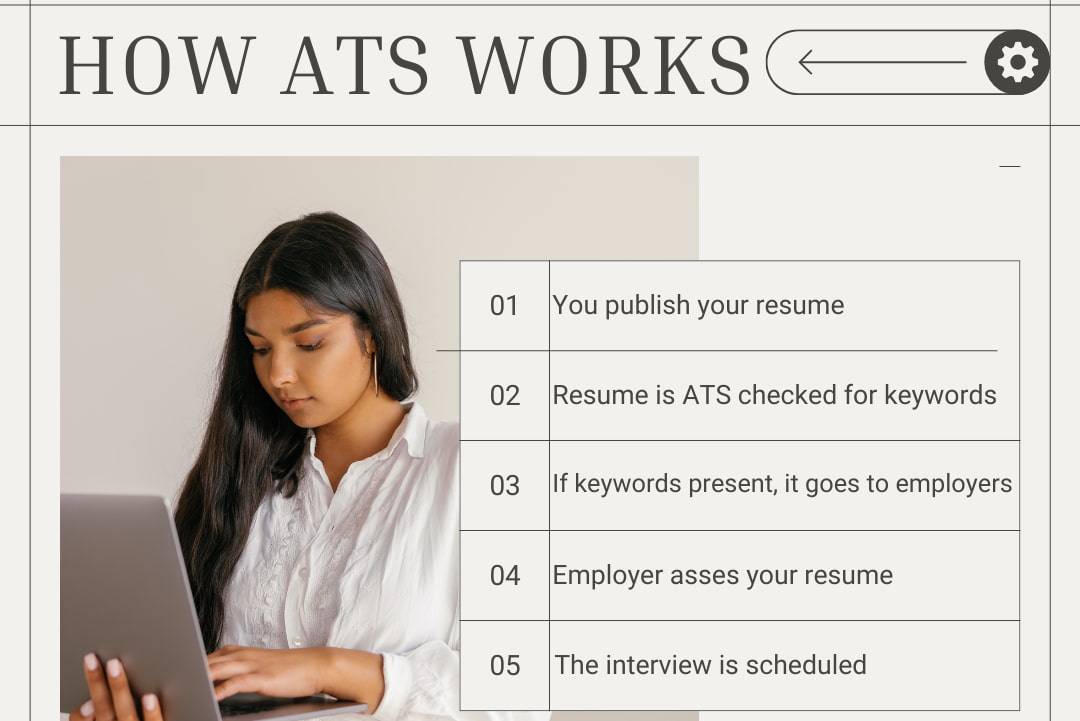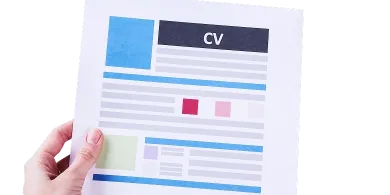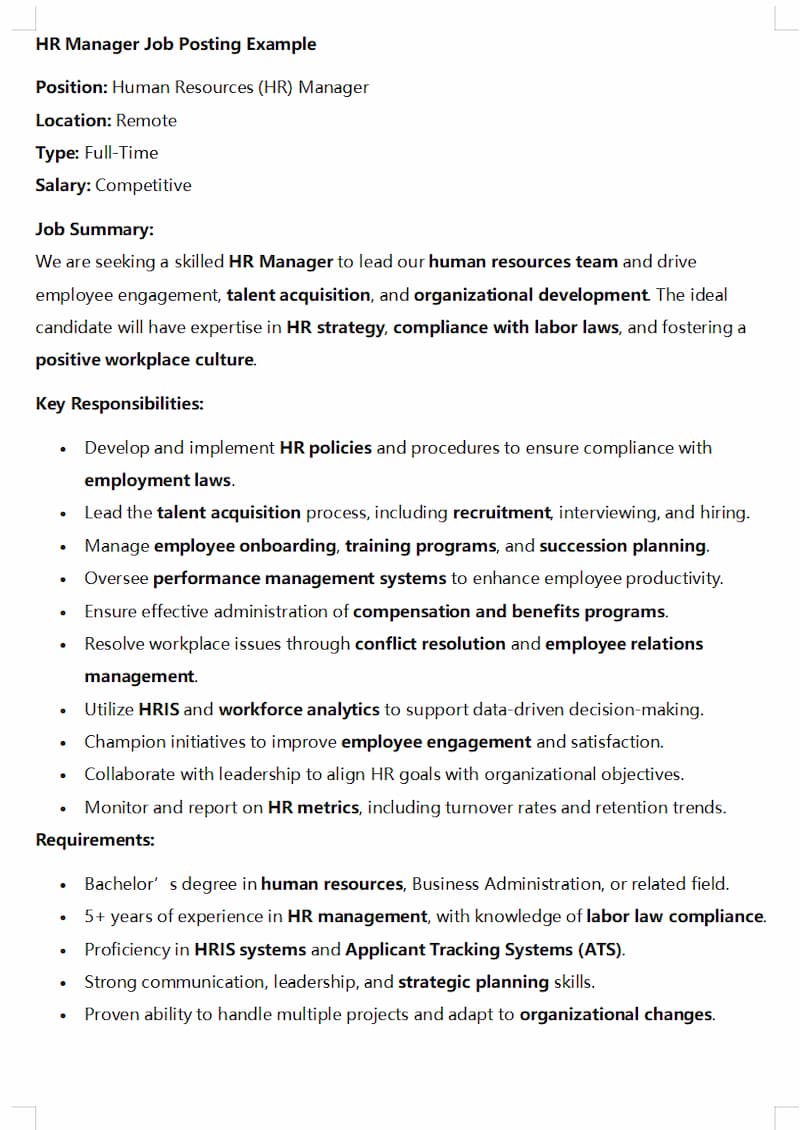Table of contents
Rich industry keywords are the foundation of an ATS optimized resume. Learn with ResumeWritingLab how to improve your resume with ATS-friendly keywords and secure more interviews with our expert tips.

The introduction of the latest technologies and tools in the hiring/recruitment process are becoming one of the most challenging aspects to meet for landing interviews and securing new jobs. The low-tier, mid-size, and high-tier companies have automated their manual HR processes.
Different companies are developing their own digital gatekeepers such as Applicant Tracking System (ATS) and others are getting subscriptions from ATS service providers aligned with their industry requirements.
These AI tools are configured at the very first step of hiring process which is receiving and selecting the candidates’ applications, including Resumes and CVs. The ATS scans resume to identify candidates whose profiles match the job description.
The keywords are the heart of ATS and the role of keywords in resume writing for ATS is like oxygen for human beings. The purpose of keywords in the resumes and CVs is to pass an ATS scan and bring you to the HR table for interview.
According to Job Scan research, it found that over 98.4% of Fortune 500 companies use ATS. These stats clearly reflect the importance of ATS friendly resumes and job-specific resume keywords. Your resume or CV wording and formatting should be ATS friendly.
The purpose of using keywords in resume and passing the ATS scan is to increase your chances of being selected for an interview. For ATS resume formatting you can learn through here.
The keywords in resume writing are renowned terms and terminologies which are being used in the targeted industry. These terminologies are developed, followed, and promoted by industry experts to keep the differentiation between different job titles, work nature, and industries. Furthermore, keywords vary from position to position and industry to industry.
For better understanding of what are keywords in resume, we need to go through the general example of Newton’s Resume.

If we write the resume for Sir Issac Newton, the main keywords to add in his resume will be Laws of Motion, Universal Gravitation, Calculus Development, Optics, Refraction and Light Spectrum, Scientific Methodology, Celestial Mechanics, Experimental Physics, Currency Standardization, and Scientific Leadership.
For further guidance, we can take another example of an HR Manager. While crafting the resume or CV of HR Manager we add to add terms or keywords which are directly related to the targeted goals from a professional background.
“Talent Acquisition, Employee Onboarding and Offboarding, HR Policy Development, Workforce Planning & Management, Employee Relations & Retention, and Succession Planning” are the important keywords to add in HR Manager resume. Basically, keywords are a combination or reflection of our day-to-days tasks, accomplishments, skills, and experiences.
Additionally, the most important keywords are mentioned in the job posting of the targeted company. We need to take those keywords to develop ATS friendly resume. Moreover, looking to write resume by yourself: you can always visit how your resume can beat ATS for better and in-depth understanding of resume writing process.
There are different ways to check the keywords in the job posting. There are many paid and free tools to check the keywords in the content. The easy way to check keywords in the job posting is to spend 10 minutes on reading the entire information mentioned in the job posting.
Now, the next step is to gather key or main points on which they have focused. Let’s go through the below example for better understanding of finding the keywords required for passing ATS scan.

After reading the above job posting information, we figured out the keywords or industry terms:
Finding and adding keywords in resume writing will be very difficult for the person who didn’t go through the job posting information in detail and compare key points with his or her professional experience or resume.
We came to know the importance of a resume when our resume is being rejected and we don’t receive interview calls even after adding the entire experience in our resume. The key to success over here is to add required keywords as it is enlisted in the job posting to our resumes or CVs.
Before finalizing the best place of keywords in resume writing, we should have better understanding of resume parts. There are three major parts of resume, including professional summary, career experience, and education.
The major parts are tailored or customized in various variations aligned with the resume writing standards and targeted company requirements. The main point in resume writing is to meet the demands of the targeted company and ATS.
Professional Summary
Career Experience
Education
When we go through the resume parts, we can’t make any changes to Education part as we are going to mention our certificates and other items as it is with specific names. So, there are two major parts left summary and professional experience.
80% of keywords need to be covered in Professional Experience and 20% in Executive Summary at the top of your resume. The general rule or best practice is to include 25–30 keywords in resume.
Adding too many words can cause your resume to be rejected by Applicant Tracking Systems (ATS). While crafting professional resumes we need to focus on the function of keywords in resume writing along with balance with professional resume writing and latest ATS standards. We need to find keywords from job posting and then cover in our resume.
Let’s go through the example of above keywords; they are looking for a person who is expert in HR functions, talent acquisition, compliance with labor laws, and employee engagement. First, we need to confirm at what level we stand in these areas or did we perform these tasks with previous companies. Let’s suppose if we have performed these tasks. We will cover these areas in our experience such as:
The ATS screening process includes scans of your complete professional document. But when it comes to HR, he focuses on the first page or maximum some parts of the 2nd page. So, we need to cover the best areas related to targeted role on the first page and for better understanding read our blog.
Professional Summary and areas of expertise are going to satisfy or dissatisfy HR with your profile as this is going to be the first part of your resume or CV. When it comes to adding keywords in the summary part we need to follow professional resume summary development practices.
A talent-focused and performance-driven HR Manager with 10+ years of experience in leading all aspects of talent acquisition, labor law compliance, and employee engagement.
Keywords play a crucial role in helping your resume get noticed by Applicant Tracking Systems (ATS) and recruiters at the start of recruitment process. To ensure that your resume is ATS-friendly, stands out during the initial screening process, and aligns with the role you are applying for, we need to integrate relevant job-specific keywords.
Keyword relevance, density, and compatibility with the job description are essential for resume optimization. When crafting your resume, it’s important to not only focus on the ATS scanning process but also maintain a keyword-rich format that is both effective for ATS algorithms and appealing to human readers.
Moreover, after reading this entire blog you are unaware about “Role of Keywords in Resume Writing for ATS” or how to add keywords in resume.
ATS-friendly keywords are specific terms from the job description, including skills, qualifications, and industry jargon. Incorporating these keywords ensures your resume matches the employer’s requirements, enhancing visibility and increasing the likelihood of being shortlisted by Applicant Tracking Systems.
Optimize by integrating relevant keywords naturally within your resume sections like summary, skills, and experience. Focus on context and readability, use synonyms where appropriate, and prioritize the most pertinent terms to maintain balance without keyword overuse.
Keyword relevance ensures that your resume aligns closely with the job requirements. Relevant keywords demonstrate your suitability for the role, improving your resume’s ranking within ATS and increasing the chances of progressing to hiring managers.
ATS ranks resumes by matching keywords from the job description. It assesses the presence, frequency, and context of these keywords, prioritizing resumes with higher relevance and proper keyword placement, thus determining their position in the selection process.
Job seekers should analyze job descriptions, use industry-specific terminology, leverage professional profiles like LinkedIn, incorporate relevant certifications and tools, and utilize keyword extraction tools to identify and integrate appropriate keywords effectively.